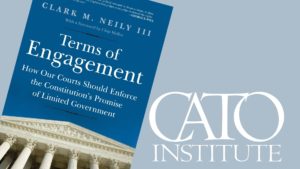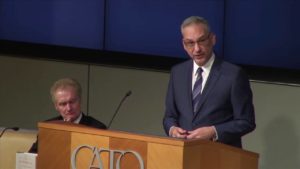My Extended Rebuttal to the Libertarian Theory of “Judicial Engagement”

I have been writing about the libertarian theory of “judicial engagement” since I became aware of it a few years ago. The theory has been promoted relentlessly by libertarian scholars associated with the Cato Institute and the Institute for Justice, especially Clark Neily, Roger Pilon, and Randy Barnett. The theory was advanced at book length in Neily’s Terms of Engagement (2013). I strongly disagree with the notion that unelected federal judges should be given unlimited discretion to divine unwritten (or “unenumerated”) rights nowhere appearing in the text of the Constitution. I likewise believe that presuming all laws to be unconstitutional and placing the burden of proof on the government to defend them would emasculate representative self-government. In short, I regard the theory as a libertarian fantasy and a prescription for disaster.



It has been a topic I have addressed on Law & Liberty (e.g., here and here), National Review (here), American Greatness (here), City Journal (here), and Modern Age (here). A libertarian acquaintance who is a proponent of judicial engagement characterized my “more recent work”–which presumably includes the foregoing articles–as consisting of “mostly of thinly sourced blog posts.” Well, the Texas Review of Law & Politics has just published my extended critique of and rebuttal to judicial engagement–46 pages of text with almost 200 footnotes. The title is “Unleashing the ‘Least Dangerous’ Branch: Quis Custodiet Ipsos Custodes?” It is available online here.
I hope you read it, and enjoy it. It will be back from the printer, and in the hands of TROLP subscribers, shortly.

































